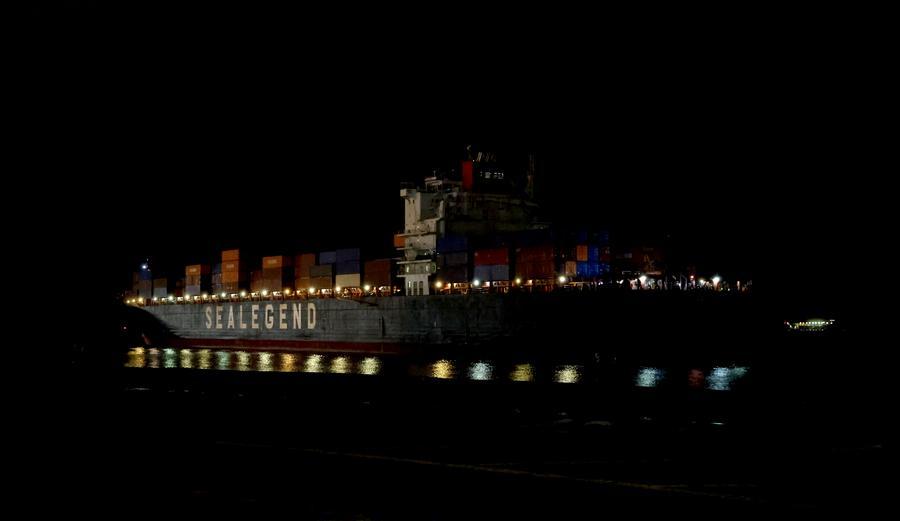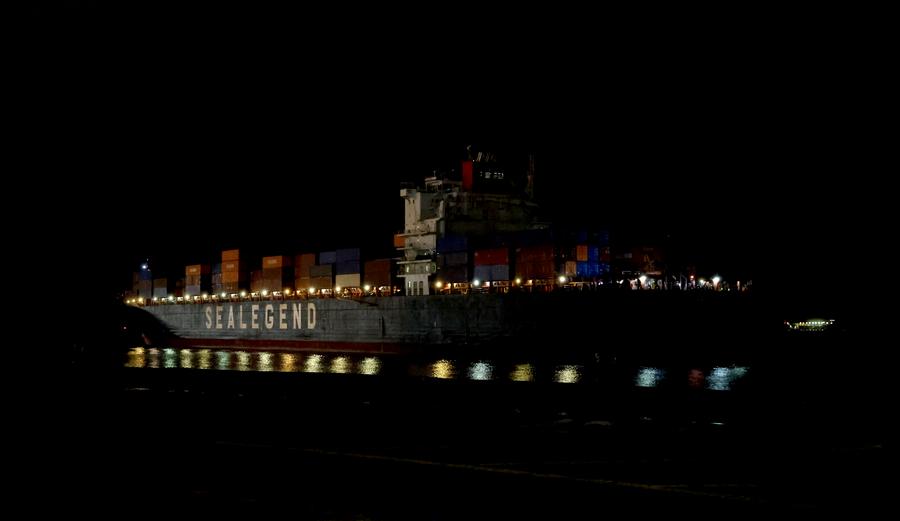
This photo taken on Oct. 13, 2025 shows the "Istanbul Bridge," the first vessel on the China-Europe Arctic container express route, arriving at Port of Felixstowe in Britain. (Xinhua/Li Ying)
The route offers a clear time advantage over the China-Europe Railway Express's roughly 25 days, about 40 days via the Suez Canal, and some 50 days around the Cape of Good Hope.
FELIXSTOWE, Britain, Oct. 14 (Xinhua) -- After a 20-day voyage, the first vessel on the China-Europe Arctic container express route arrived Monday night at the Port of Felixstowe in east England.
The route offers a clear time advantage versus roughly 25 days by the China-Europe Railway Express, about 40 days via the Suez Canal and some 50 days around the Cape of Good Hope. Thanks to the shorter voyage, carbon emissions are significantly lower, contributing to global climate goals and sustainable development.
Named "Istanbul Bridge," the container ship departed from the Ningbo-Zhoushan Port in east China, carrying about 4,000 twenty-foot equivalent units (TEUs) of cargo. It will discharge its load at ports in Britain, Germany, Poland and the Netherlands.
Li Xiaobin, chief operating officer of Sea Legend Line Limited, which operates the route, said at the quayside that the ship is primarily carrying goods such as lithium-ion batteries and photovoltaic products, as the sea and temperature conditions along the route are well-suited for heat-sensitive and time-critical cargo.
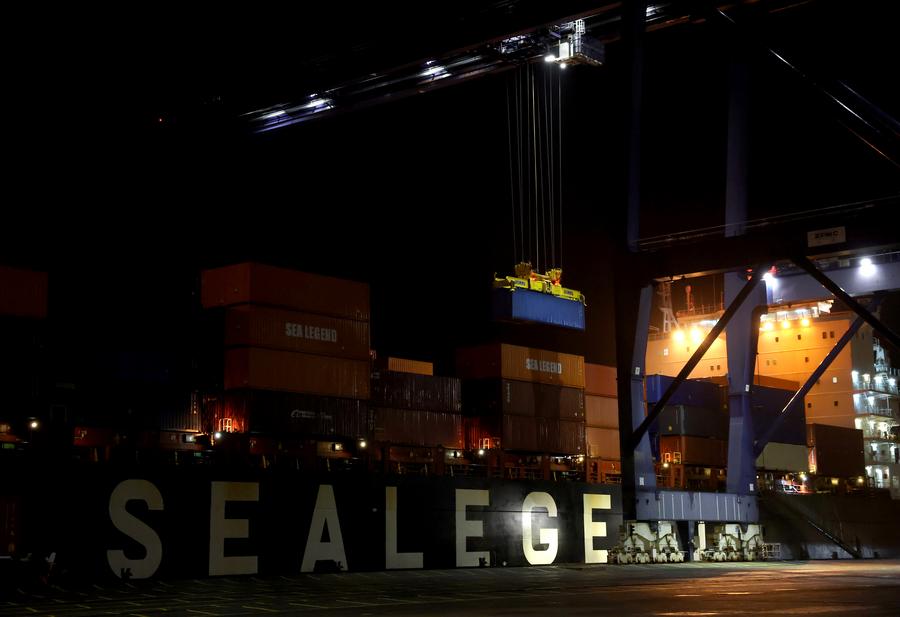
"Istanbul Bridge," the first vessel on the China-Europe Arctic container express route, unloads cargo at Port of Felixstowe in Britain, Oct. 13, 2025. (Xinhua/Li Ying)
"The low temperatures help preserve certain high-tech components, and the calmer seas during navigation mean less vessel movement, reducing friction and the risk of damage to precision parts," he said.
The maritime service uses the Arctic's Northeast Passage to reach Europe directly. Li said that after exiting that passage, the vessel encountered Storm Amy in the Norwegian Sea on Oct. 8 and reduced speed for safety, arriving in Felixstowe two days later than planned.
"This has been an exhilarating voyage in my 18 years as a captain," captain Zhong Desheng told Xinhua, adding that he was "thrilled" to lead his crew to port. He said the company began preparing for the route three years ago, including vessel hardware upgrades and systematic training for the crew.
"We navigate this route with a deep sense of respect and caution," the captain said. "There's a certain pressure that comes with the great responsibility we carry, but with thorough preparation and strong support, we're fully confident in completing the voyage safely."
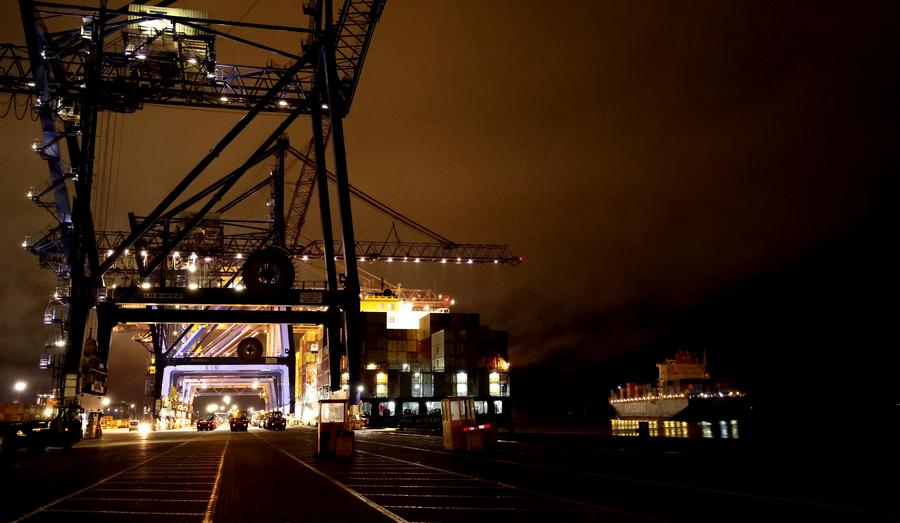
This photo taken on Oct. 13, 2025 shows the "Istanbul Bridge (R)," the first vessel on the China-Europe Arctic container express route, arriving at Port of Felixstowe in Britain. (Xinhua/Li Ying)
Li said the company has also improved the accuracy of meteorological navigation forecasts for the vessel,laying a solid foundation for the success of this trial voyage.
According to Sea Legend Line Limited, the Arctic Northeast Passage links East Asia and Europe and is emerging as a new trunk line for international shipping, with potential to streamline global supply chains and bolster trade along the route.
Fang Yi, the company's chief executive officer, said that the Arctic route offers faster transit times and helps improve efficiency across the logistics supply chain. "By using this route, inventory levels can be reduced by as much as 40 percent, significantly cutting capital costs. A faster supply chain means we can respond more quickly to market demand and stay ahead of the competition."
The shipping line will see more ice-classed ships in 2026 and have a fixed summer schedule for service, he noted, adding that during the winter non-navigable period, the company plans to accelerate the development of its express service to Eastern Europe.
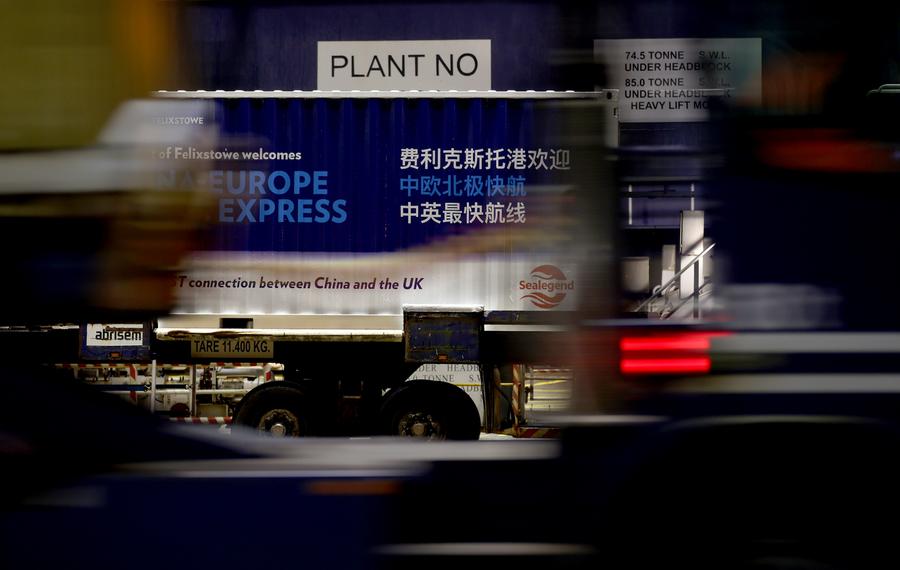
This photo taken on Oct. 13, 2025 shows a welcome message for the "Istanbul Bridge," the first vessel on the China-Europe Arctic container express route, at Port of Felixstowe in Britain. (Xinhua/Li Ying)




 A single purchase
A single purchase








